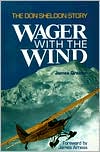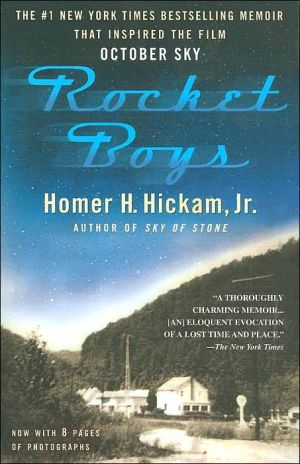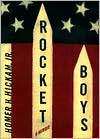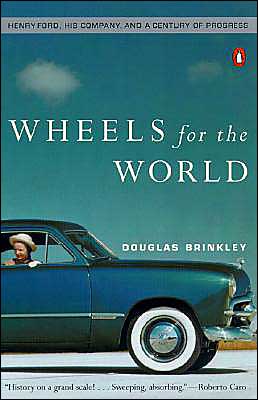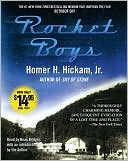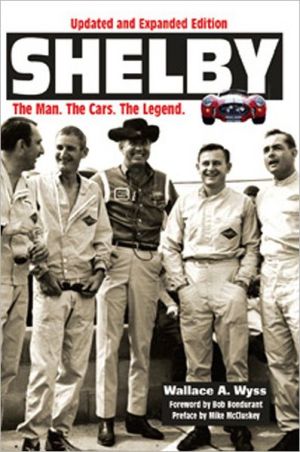Wager with the Wind: The Don Sheldon Story
Don Sheldon has been called 'Alaska's bush pilot among bush pilots', but he was also just one man in a fragile airplane who, in the end, was solely responsible for each mission he flew, be it a high-risk landing to the rescue of others from certain death in the mountains of Alaska or the routine delivery of supplies to a lonely homesteader. Read James Greiner's Wager with the Wind to learn how a hero was born, and also how he made his courageous journey to the unknown skies of dealing with...
Search in google:
Don Sheldon has been called 'Alaska's bush pilot among bush pilots', but he was also just one man in a fragile airplane who, in the end, was solely responsible for each mission he flew, be it a high-risk landing to the rescue of others from certain death in the mountains of Alaska or the routine delivery of supplies to a lonely homesteader. Read this book to learn how a hero was born, and also how he made his courageous journey to the unknown skies of dealing with cancer.
Wager With the Wind\ A Step And A Half\ The mountain, 60 miles northwest of where he stood on his dirt airstrip in Talkeetna, always gave him a clue to the approaching weather. On this Christmas day of 1958, he could see from the cloud layers building up around the mountain that a storm was brewing. More than any other man alive, Donald Edward Sheldon knows Mount McKinley—its soul-inspiring beauty and its basic savagery. He understands the lure of the mountain, called "Denali" by the Athabascan Indians, and respects the almost unparalleled mental and physical stamina needed to meet the challenge of this forbidding giant. Sheldon's love affair with this monolith of a forgotten Ice Age began with his first sight of North America's tallest mountain, rising 20,320 feet above Alaska's spruce-cloaked interior. She has been his mistress ever since.\ The brisk wind tugged at his clothes and banged the sliding hangar doors. Snow blown off the roof swirled around him. Sheldon was glad he had hangared four of his planes before the blizzard could begin. As he stepped inside to check his schedule for the day, he heard the jangling of the phone barely rising above the noise of the wind. It was a dispatcher from Tenth Rescue Division at Elmendorf Air Force Base in Anchorage.\ The news the dispatcher gave Sheldon was anything but good. A huge military C-54 transport was overdue. It had left Anchorage the day before en route for Shemya, in the Aleutian Islands, but it never got there. Radio contact had been lost after the big plane —carrying passengers, Christmas packages, and the payroll for thetroops at Shemya Air Force Base—called a position report 100 miles southwest of Anchorage. At the time of the last report, the plane had been flying in heavily overcast weather.\ The Alaska Peninsula spawns a system of foul weather that has affected the entire history of Alaskan aviation. In the early forties, during the Second World War, both the Japanese and American war machines were hard pressed to cope with it, and Dutch Harbor became a word that most GIs and military tacticians would like to forget—permanently. The long string of tiny treeless islands, with names like Attu, Umnak, Atka, and the Rats, are strung out from the peninsula into the vastness of the North Pacific, where they are steeped continually in the heavy fog, wind, and zero-zero overcast for which such maritime environments are notorious. The weather does not get much better as it approaches the base of the peninsula near Port Moller and Cold Bay.\ "Tenth Rescue didn't initiate a search because of the weather, and the guy asked me if I'd be interested, to which I said, 'You bet!' After I hung up, I looked at the weather south of town, and I knew that this wouldn't be any lark, 'cause she was stacked up like sour biscuit dough as far as I could see, which wasn't very far."\ Into the Super Cub's boot, Sheldon loaded cans containing four extra hours of gasoline, a pair of snowshoes, and his survival gear, which as always was packed into a big red nylon bag that closely resembles a fat sausage. He had decided to begin his search somewhere in the north quadrant of Mount Iliamna, a 10,016-foot active (smoking) volcano, 180 miles south of Talkeetna. The peak is on a direct airway to Shemya and 1,200 miles to the northeast.\ After topping off his wing tanks and slipping into his parka and felt-lined overshoes, he took off to the south and set a course that would take him over the braided and frozen Susitna River to Cook Inlet. Once there, he planned to follow the coastal flats to the vicinity of Tyonek and Trading Bay. This course would place him just a short hop from Iliamna.\ "Tenth Rescue had told me that they had layered clouds in the vicinity of Iliamna, and man they weren't kiddin'. It looked like a milk shake, and the trip down had been like the old roller coaster. I had just recently installed a powerful HF radio in the airplane, and I figured that I could call New York City on 3411 if I had to. Right now, I was busy just lookin' for a place to start lookin'."\ The tiny Super Cub, 7163 Delta, jumped like a scalded cat asSheldon closed with the base of Iliamna. Looking for a break in the low ceiling, he flew south to the vicinity of Iniskin Bay.\ "I noticed right off when I got to Iniskin that the wind, which was blasting out of the south, was thinning the cloud deck on that side of the mountain, but the north side was a swirling mass of snow, pushed by a wind that I estimated to be blowing at about 30 to 40 knots."\ Sheldon now had to play what cards he had or get out of the game. Once on the north side of Iliamna, there would be no room for even a carelessly drawn breath, because low-level flight along the slopes of any mountain is risky when there is high wind and little visibility.\ "I got as low as I could after I ducked into the clouds, and like I figured, couldn't see a thing except occasional snow and rocks. I could smell the stinking sulfur fumes from the volcano rifts as I got downwind of 'em through the cracks in the Cub's door, and it was a bad scene. Each time I punched a hole in the low clouds, I hoped they weren't stuffed with rocks.\ "In a deal like this one, all you can do is follow your hunches, and you'll last longer—unless, of course, they turn out to be wrong. The hunch I had told me first that they were on the north side of the mountain, and then it said to look higher. I had the growing feeling that if I could only get to 8,500 or 9,000 feet, I'd find something. At this point, the wind is rippin' and tearin', and I'd been in the overcast for about half an hour. I started to look for a hole to go up through."\ During his entire career, Sheldon has been a firm believer in what he casually calls "good hunches," and he was willing to play his hunches here on the jagged slopes of a mountain that was, for the most part, unfamiliar to him. On McKinley, he has come to know the mountain so intimately that he can get but a momentary glimpse of rock and ice and know exactly where he is and in which direction he is traveling, but not here.\ "I was headed north and climbing, and in the process of making a turn to the left. I had just about made up my mind for the 8th time that I'd never get to nine grand [9,000 feet] when out of the corner of my eye, I spotted something that made my old ticker stand still. There she lay, and would you believe—the transport was scattered for half a mile."\ Sheldon swung the Super Cub in a dangerously steep bank tonegate the chance of losing the site of the crash. On his first return pass, he thought he could see numbers, but he needed to get closer.\ "The damned scud and sulfur fumes, which smelled like rotten eggs, were streaming across my line of vision, and the Cub was bouncing up and down in the turbulence. The numbers of the plane were on the tail fin, and because of their size, I ended up readin' 'em on my 7th pass at 50 feet of altitude."\ Sheldon hastily jotted the registry of the plane on a scrap of brown paper as he climbed away from the grisly scene. During the course of the seven on-the-deck sweeps he had made over the broken plane, death had been but a single moderate downdraft away.\ "I pulled out over the ocean on the south side and gave Elmendorf a holler on 3411, and they came in like the guy was sittin' next to me."\ "Ah, Roger 63 Delta, go ahead," said a calm military voice.\ "I say, 'Hey, are these numbers correct?' and then I read 'em off."\ The military voice verified the plane's registry. Sheldon "hauled anchor" and landed on the beach in a wind-sheltered cove near Trading Bay only long enough to dump the red 80-octane gas he carried through the chamois-skin strainer and stretch his cramped legs. Then it was back to Talkeetna for a Christmas turkey and a game of poker at the Bucket of Blood Bar.\ Sheldon received a special citation from the U.S. Air Force for his efforts in finding the lost plane.\ An interesting incident closely related to his location of the C-54 would occur six years later. He was asked by an amateur treasure hunter from the Talkeetna area to take him to Mount Iliamna to look for "base metals."\ "I hauled this guy, along with 2,000 pounds of gear, down there in the ski plane, and when I finally got him landed, I suddenly realized we were at 8,250 feet, just 2 miles west of the snow-buried site of the 1958 disaster. The military had, of course, put the place off limits and listed it as an unrecoverable disaster. This was six years later, and the off limits designation wouldn't be removed till the following year. My flesh crawled when it suddenly dawned on me what this dude had in mind. I walked up to the guy and said, 'If you plan to salvage the valuables from that C-54, mister, you're going to do it over my dead body, and you got just 20 more seconds to get your butt into this here Cub, or I'm headed for Elmendorf.'"\ Sheldon knew that in addition to the personal effects that lay beneath the snow, the payroll for the military installation at Shemya was still there too.\ "We almost had a knockdown battle right there on the side of old Iliamna before the guy thought better of it and hopped into the Cub. He sulked as I took him back to Talkeetna, and after back-hauling all that gear, I figured here was one trip I'd never collect for, but I was wrong. He paid off later, but since that day to this, I'm definitely not on his list of favorite speaking acquaintances."\ \ From the flickering shadow of a tiny airplane on the rugged granite face of a remote mountain to the momentary darkness of spring clouds racing over an endless sea of bunchgrass prairie is an effortless shift in time for one who remembers well.\ Donald Edward Sheldon was born in Mt. Morrison, Colorado, on November 21, 1921. In 1923, the family moved to Wyoming.\ Sheldon's world then consisted of a small ranch—a few hundred acres owned by his father—and the surrounding federal lands that were leased to the ranchers to provide grass for their cattle. The grazing lands always seemed to renew themselves as if by magic, or so it seemed to young Sheldon. A sudden rainstorm would drench the red earth and renew the bunchgrass that had shriveled during a hot, dry summer. Water, dammed and held in reservoirs much as it is today, was readily available. A comfortable but unstable self-sufficiency prevailed.\ "This place was near the great Red Desert in the sovereign state of Wyoming," Sheldon explains, "and the nearby settlement of Lander straddled the still-evident ruts of the old Oregon Trail that wound through South Pass. School was five long miles on horseback for me and my older sister."\ Sheldon recalls his early life in a series of sharp, though often detached, impressions that almost exactly mirror his unique personality as a man—the undulating prairie grass; the musk of newly turned sod; the weathered ranch buildings content in their declining years to shelter a rancher, his wife, and their two children; and above all, the exciting plethora of wildlife. Smiling in his disarming fashion, Sheldon recalls the flash of white antelope rumps and the heavy prairie chickens that were a delight to behold both on the wing and on the black iron wood stove as they cooked to tender goodness. Sheldon's consummate interest in the big-game animalsof Alaska—the moose, caribou, and the giant shuffling grizzly bear—is the perfect counterpart of his childhood fascination with elk, bison, and bighorn sheep. His interest, now as then, transcends the ordinary and zeroes in on the habits of the animals—how they survive, where they spend their lives, and how they can be approached. On the plains and in the mountains of Wyoming, he was training in the best, and perhaps least expensive, school of all to become a self-made naturalist, and at the same time, was cultivating a deep and abiding respect for the basic forces that shape our environment. Even during these early years, the lad was always influenced by the relentless natural force of the weather, which would regulate and almost define his adulthood—the driving snowstorms of winter and early spring; the hot, dry, grass-scorching summers; and the violent winds that would become his constant companion and adversary in his final chosen vocation. To Sheldon the bush pilot, the marrow-chilling cold on the high mountains of Alaska would be little different from the cold he remembers as a boy when he and his older sister, Berniece, became trapped in a gale-force blizzard en route to the small country schoolhouse five miles from their ranch.\ Like other boys of similar places and times, Sheldon learned to ride, and he vividly remembers the throbbing scrapes and bruises left by unyielding rocks after a fall from the back of a skittish horse that had been panicked by the flashing rump patches of a jumping band of pronghorns. The horse was the only available means of transportation for young Sheldon, and riding required confidence and considerable personal skill. Perhaps one might speculate that his almost total reliance upon the airplanes he flies today found early root here.\ Ranch work was hard and bone wearying for the boy. The gathering and storing of the neck-prickling hay that would forestall hunger for the livestock during the winter and the harvesting of three complete crops of alfalfa during the summer and early autumn made for a never-ending cycle of labor. Blisters of spring turned to calluses of summer, and young stringy muscles became wiry and hard during school vacations spent learning to earn a living from the land.\ In autumn, the same hard work continued. Corn and wheat were harvested instead of hay and alfalfa. Inevitably, the shocking of wheat for the threshing machines and the harvesting of the cornwere accompanied by a sudden succession of stubble-frosted mornings and clear, cool days. Scurling like clean slate haze beneath mile-high blue skies, the pungent scent of wood smoke, always present but never so meaningful, ushered in the undeniable winter. Year-round, the youngster's life became a closely regulated succession of effort, always disciplined by the weather. He learned to accept the satisfaction of doing hard work in order to survive. Today Sheldon's life has not changed a whit from these very early beginnings. It probably never will.\ When he was eight years old, his father died, and young Sheldon's hard-earned and yet unidentified sense of rising above at least a few of the early frustrations of growing up was shattered. Sheldon and his sister were taken to Lander, Wyoming, by their mother. Here Mrs. Sheldon would operate a successful rooming house and follow her rancher husband in death during Don's 12th year.\ After their mother's death, Berniece went to live with relatives in Denver, and Sheldon moved in with LaVerne and Pat Norman, his aunt and uncle, on their ranch near Lander. After several years spent in the relative confinement of town, he had been elated to return to the work he knew best on the ranch at the north fork of the Popo Agie River.\ When he was 13 years old, he became a summer-vacation wage earner. At his uncle's urging, he took a job with the long-established Wyoming Tie and Timber Company. This concern harvested timber, which was then hand-hewn for the manufacture of railroad ties. The logs were flumed to the mighty Wind River and then floated down to Riverton, Wyoming, and a pickling plant there.\ Young Sheldon had been mildly reluctant to take the job with the tie company, but after he had been with a timber-cutting crew awhile, he found that he liked the work.\ These cutting crews were constantly on the move, much like the cowboys of this country during earlier years. With good luck, the tie drivers could travel 10 to 15 miles each day. Sheldon's job was to help move the tie camps ahead of the tie drivers and to assist the cook in the outdoor kitchens at each new location. He remembers the mouth-watering aromas of succulent roasts, thick crumbly blueberry cobblers, bread, and other delicacies cooked in a Dutch oven by filling the lipped top with hot coals from the campfire. The chief cook in Sheldon's first camp was an old Norwegian,Adolf Solum, who was "a true master of the Dutch ovens. He could, with uncanny accuracy, estimate the exact time required to bake bread and other delights to a state of utter perfection."\ The drives terminated at the pickling plant in Riverton. All hands were then given jobs on the plant conveyer, recovering and processing the tie logs from the waters of the Wind River.\ Sheldon worked for the tie company during each school vacation through the summer of 1938. By then, with high-school graduation a thing of the past, his thoughts had begun to center more and more on a place far to the north, a place he had never seen—the Territory of Alaska. He had heard and read much about the raw land where gold was still a warm attraction and game was said to be plentiful beyond belief. By now, his imagination, nourished by a quiet, thoughtful manner, had provided an impetus that could no longer be ignored. Like so many others before him, and even more since, young Sheldon could not really explain this attraction. Alaska promised adventure to be sure and the heady exhilaration of strange new sights and sounds, but most of all, it carried the gilt-edged promise of being a worthy place for Sheldon to fulfill his burgeoning desire to be truly self-sufficient. He was 17 years old.\ When operations at the tie plant ended for the summer, Sheldon and two friends, Charlie Shatto—called "Yarlie" by his pals—and Roy Graham, purchased a well-used Model-A Ford and departed Riverton for Seattle. On their epic journey across the states of Idaho and Oregon, they "rebuilt the 'A' three or four times." Finally, the trio reached the port city of Seattle just in time to watch the steamship Yukon depart Pier Number One for Alaska. Following a period of serious deliberation and a few words of farewell, Shatto and Graham headed for the peach orchards of Oregon, while Sheldon vowed to wait for the next boat. He spent a long week at the Seattle YMCA before he could board the next northbound steamer.\ As the journey progressed, Sheldon became increasingly inspired by the magnificent Inside Passage, with its fjords, rugged foothills and mountains, the spruce forests rising to timberline, and the cold, gray-green waters of the North Pacific. The steamship docked at Seward after an eight-hour layover in Juneau, and here, at its southern terminus, Sheldon boarded the Alaska Railroad for the final leg of his journey.\ Upon alighting from the train in Anchorage, Sheldon's nostrils were assailed by the cool, moist air of the sea, and he heard theincessant gulls, sounding like a chorus of rusty gates in a steady wind. The mist-softened outlines of the Chugach Mountains to the east somehow tempered the stark newness of this place. Sheldon felt the electric surge of confidence that has inspired all newcomers who are destined to a lifetime infatuation with Alaska. This feeling was soon moderated by the practical realization that because of his unplanned week in Seattle, his pockets had become alarmingly light.\ After the expensive trip north, Sheldon was forced to meet reality eye to eye. He soon discovered that even in a big city of 2,500 souls, one still needs money, which Sheldon even then was referring to as "resource." In 1938, Anchorage was yet to feel the ultimate effect of the expansion that occurred after the Second World War. Her streets were mostly unpaved, and her residents transients. Gold miners from the outlying districts spent their money in Anchorage, and the commercial fishing industry was growing to supply the increasing needs of the areas to the south. At first glance, the town seemed impressive but closer inspection soon revealed its true nature, a facade of rather fragile and definitely temporary design. Anchorage in 1938 could perhaps be likened to the young Don Sheldons of the time—everchanging, restless, yet saturated with an optimism that has somehow endured. With a tenacity that was the godchild of need, the city clung for its very life to the edge of the mud flats of Cook Inlet.\ Only after a considerable investment of what shoe leather he still possessed did Sheldon find employment in the job-hungry city with a firm called the Step And A Half Dairy. Though its unlikely name did not conjure up visions of grandeur, it did seem to promise something even more important to young Sheldon—a means to solvency. The means was a 16-hour work shift, 7 days each week, for which he was paid an even $40 per month. His duties consisted of working in the bottling plant and driving the delivery trucks on their appointed rounds during all but the earliest morning hours, when he slept.\ Six interminable weeks passed. Unknown to Sheldon he had established a record of dubious value. Due to the unheard-of long hours and submarginal pay—even in that day—a stay of longer than a week or two at the Step And A Half Dairy was defined as no mean accomplishment.\ On a brisk autumn morning—the air, with its faint odor of fishand the sea, cooler yet somehow more demanding of one's attention than usual—Sheldon drove his delivery truck down Fourth Avenue and almost ran over a fellow who looked familiar. He quickly recognized Jim Cook, a sailor he had met in Juneau on the trip north. After a brief reunion, the pair decided to pool their wealth, most of which would prove to be Sheldon's, and travel as far north on the venerable Alaska Railroad as the sum would allow. Sheldon needed no excuse to leave the dairy, and Cook also had itchy feet. Later that same afternoon, Sheldon would find that their $12 had "just barely" purchased two one-way tickets punched for Talkeetna, Alaska. The month was October, and the year 1938.\ Copyright ©1974 by Rand McNally & Company
